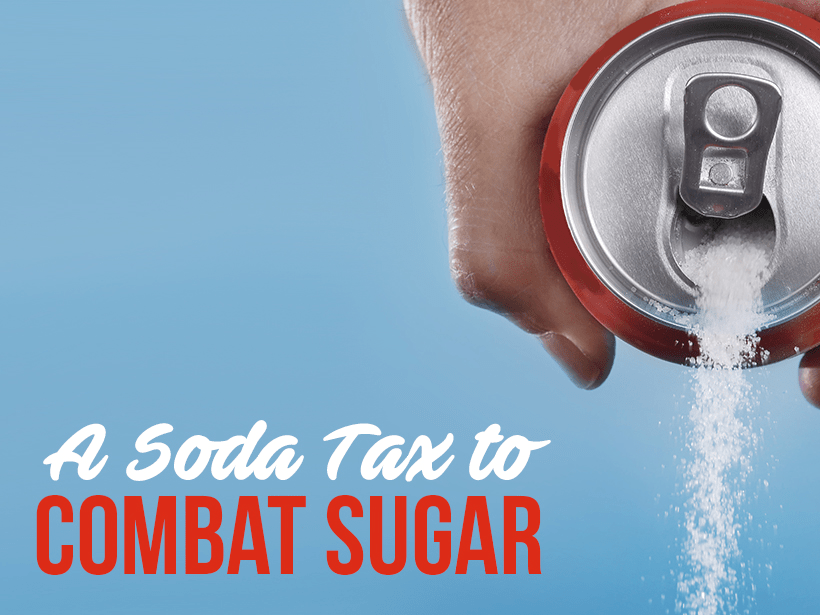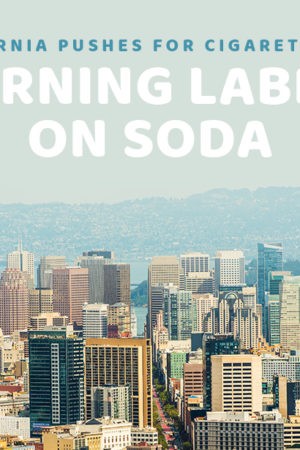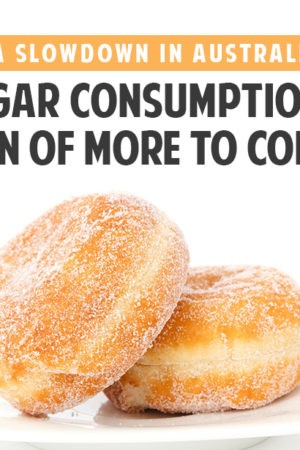Purveyors of sugary drinks in general, and sodas in particular, have gone a long way to convince the public that the popularity of their products has no relationship to America’s obesity crisis. Beverage companies spend billions of dollars each year on advertising, primarily to children; in 2010, preschoolers watched an average of 213 ads for sugary drinks, a figure which only increases with age. Even more unsettling, however, is the fact that some of this budget goes towards funding so-called scientific studies, which are four to eight times more likely to deny the relationship of these products to obesity and disease than are independent studies.1
In the face of these unsavory strategies and the financial power of soda companies, some major cities in the U.S. have begun to push back, for the sake of public health, and implement a soda tax. The first of these was Berkley, a relatively small college town where an enormous battle took place in 2014.
Soda Taxes from Coast to Coast
Opponents and supporters of the tax alike saw Berkley as a proving ground for the tax’s potential success elsewhere in the country. Perhaps this explains why the American Beverage Association Pac spent over 2 million dollars in Berkley, a town with 78,000 registered voters, trying to defeat a 1 cent-per-ounce tax.2
On the other side, former mayor of New York Michael Bloomberg donated nearly 400,000 dollars to the pro-tax campaign. According to Harold Wolfson, senior advisor to Bloomberg, “The country was really waiting for the dam to break here, and a group to lead an effort like this that was successful in passing a soda tax.”3
Right he was: soon after the implementation of the tax in Berkley, cities including Seattle, Boulder, and Philadelphia passed their own versions. Philadelphia, in particular, has for years been at the forefront of the fight against soda consumption and childhood obesity.4
An International Effort
The U.S. is not alone in its fight against soda manufacturers. In 2016 the World Health Organization recommended a 20% or more tax on soda, which it argued would lower consumption and improve nutrition.5 That same year South Africa became the first African country to announce such a tax, with Mexico and Hungary already having implemented similar measures.6 France, as of this past October, is the latest addition to this growing number of countries with the soda tax.7
It seems that, in taking sugary drinks to task, national and local governments alike are finally recognizing sugar’s role in the disturbing rates of obesity around the world. One can only hope that the dam has indeed broken and that governments around the world continue to face down the products to blame.
NUTRITIONAL DISCLAIMER
The content on this website should not be taken as medical advice and you should ALWAYS consult with your doctor before starting any diet or exercise program. We provide nutritional data for our recipes as a courtesy to our readers. We use Total Keto Diet app software to calculate the nutrition and we remove fiber and sugar alcohols, like erythritol, from the total carbohydrate count to get to the net carb count, as they do not affect your blood glucose levels. You should independently calculate nutritional information on your own and not rely on our data. The website or content herein is not intended to cure, prevent, diagnose or treat any disease. This website shall not be liable for adverse reactions or any other outcome resulting from the use of recipes or recommendations on the Website or actions you take as a result. Any action you take is strictly at your own risk.
- What Are Net Carbs? - April 29, 2020
- The Most Comprehensive Keto Alcohol Guide - April 28, 2020
- How to Measure Body Fat Percentage - April 26, 2020































